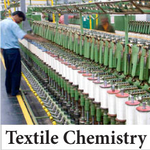
Textile Chemistry Course Details - Fees, Subjects, Syllabus, Duration, Eligibility, Career Scope
Degrees offered: B.E /B.Tech, Diploma, M.Sc., M.E /M.Tech., Ph.D
What is Textile Chemistry
What is Textile Chemistry?
Clothing is one of the basic requirements of life. This requirement cannot be substituted and hence contains a multitude within itself. Textile chemistry in the simplest of terms is a branch of applied chemistry that studies all about textiles and fabric, from their occurrence to their utilisation. Textile Chemistry uses the fundamentals of chemistry as the basis for studying and digging into the manufacturing of textiles as well as the technical compositions of the smallest unit of textiles.
This scientific study, Textile Chemistry has a huge scope in itself as it is limited regarding one domain but still advanced within that very domain. Pursuing a career in textile chemistry would mean staying updated with the changes taking place over the years in yarns, fibres, weaves, compositions, dying, quality checking, storage, etc. Apart from mainstream Fashion Technology, this course has gained popularity in recent years because of its curriculum. A lot of renowned universities have been providing degrees in textile chemistry.
A lot of people at times incline to enter the fashion industry but do not have an interest in conventional ways, including designing. They, however, have a knack for production and keeping, this is the most suitable course in that regard. The textile Chemistry course is taught in top-level Universities, private and public both, with placement opportunities in renowned fashion brands.
Eligibility Criteria (UG & PG) of Textile Chemistry
Eligibility Criteria for Textile Chemistry Course
Aspirants who wish to pursue the textile chemistry course must meet the mentioned eligibility criteria:
For Undergraduate Course in Textile Chemistry
Must have passed class 12th from a recognised board with subjects like physics and chemistry.
Must have minimum aggregate marks-40-50% to be eligible for textile chemistry course.
Undergraduate Degrees for Textile Chemistry courses majorly include Bachelors of Technology and Bachelor of Science.
Eligibility criteria for a postgraduate Textile Chemistry
Candidates should have scored at least 50% aggregate in the bachelor's degree.
The candidate must have completed an undergraduate degree in Bachelor of Science or Bachelor of Technology in Textile Chemistry from recognised institutions.
To secure admission in the Master’s program, candidates must have cleared the entrance exam conducted by their respective universities.
After the candidate clears the entrance exam, a personal interview and group discussion are conducted. Afterward, a provisional list is released which contains the names of all the selected candidates.
Textile Chemistry Entrance Exam
JEE Main and JEE Advanced- Joint Entrance Exam is a national level exam that is conducted annually for students to secure admission in various B. Tech programs. The applications usually begin in November of the previous academic year.
MHT CET- Maharashtra Health and Technical common entrance test is conducted for students to secure admission into different engineering and Health Sciences programs. The applications are usually released in January.
KCET- Karnataka Common Entrance Test is a state-level entrance test that is conducted annually for students to secure admission into different courses, including engineering. The applications are usually released in February.
UPSEE- Uttar Pradesh State Entrance Examination is a state-level exam conducted annually for students to secure admission into programs like Architecture, Engineering, Management, etc. Applications are usually released in January.
- KEAM- Kerala Engineering Architecture Medical is a state-level entrance examination series conducted by the Government of Kerala for students to secure admission into above listed professional degree programs. The applications are usually released in February.
Scope of Textile Chemistry in India and Abroad
Scope of Textile Chemistry in India and Abroad
The market requirement for graduates and postgraduates in textile chemistry is huge and distributed across all states. This line of profession constantly flourishes because new trends are evolving in the fashion sector every day.
The backhand work depends heavily on textile chemists. Studying Textile Chemistry course creates a pool of potential candidates who fit the profile of personnel required by renowned brands like Vardhaman, Raymond, Vaamsi, etc.
After certain years of experience in Textile Chemistry field, people working in this line also have the option of building their Enterprises and setting up mills and factories that work on a hiring basis for established national and international brands and aid them in coming up and processing with quality merchandise.
Course Fees Textile Chemistry
| Minimum Fees | Maximum Fees | |||
|---|---|---|---|---|
| Private | Government | Private | Government | |
| UG | ||||
| PG | ||||
| DOCTORAL | ||||
| DIPLOMA | ||||
Course Subjects
Subjects Covered Under Textile Chemistry Course
The degree courses in textile chemistry extend up to four years which is divided equally into 8 semesters, 4 in the case of M.Sc. The subjects taught in textile chemistry include both theoretical and practical based subjects. Some of the common subjects studied by students in this course are given below.
Theory of Coloration of Textiles
New Fibres: Chemistry and Technology
Non-Conventional Approaches in Textile Wet Processing
High Tech Applications of Dyes
Coloration Evaluation Lab
Nanotechnology in Textiles
Textile Technicality
Costing, Project Formulation, And Appraisal
Production and Operations Management
Costing and Valuation Production Planning Lab
Design and Structure of Fabric
Computer Application in Textiles
Careers in Textile Chemistry
Careers in Textile Chemistry
After pursuing courses in textile chemistry, the candidates open themselves to stable career choices. Companies usually hire candidates to retain them in the long run. The work gets diverse and more complex, followed by an increment in the package.
These jobs include profiles swaying between designing and technology, science. The scope in Textile Chemistry of getting hands-on opportunities only amplifies as some big companies have set a market niche in this industry. These brands consistently look for efficient and qualified people in the Textile Chemistry field to enhance the level of quality.
Some universities guarantee internship programs at international brands which sometimes are followed by job offers. Hence, the spectrum of landing a stable and growth-oriented job is tremendously feasible in the textile industry.
Upcoming trends
The textile industry has probably been there for the longest time and yet the majority of the sector functions on the same old rule of thumb methods. This industry includes tedious manual work at the ground level and a hefty amount of time to accomplish simple tasks. Not just that, keeping tabs on the work done is a task in itself.
To avoid extensive manual work, modern equipment is being developed to ease out the labour required in the printing and the dyeing of merchandise.
The use of speciality chemicals is also emerging to provide a cost-effective and efficient outcome. Some of the upcoming trends in the textile chemistry sector are given as follows:
Modernisation in printing and dyeing technologies
Equipment Modification
Speciality Chemicals
Job Profiles and Top Recruiters
 Tata Consultancy Services Ltd.
Tata Consultancy Services Ltd. Tech Mahindra Ltd.
Tech Mahindra Ltd.Job Profiles Offered to Textile Chemistry Graduates
Degrees in textile chemistry are still underrated in India to other mainstream engineering courses. As an advantage of this factor, graduates and postgraduates in textile chemistry are limited in number, and the availability of the job market is almost always open.
The Monopoly of certain International brands producing and operating in India also influences the job profiles in Textile Chemistry field of candidates a great deal. Companies hire people to work under different departments which allows the candidates to acquire hands-on knowledge about the entirety of this industry. The same pattern is followed by lesser-known rival companies planning to jump up the market standing. This way, the candidate gets to work in different levels of profiles in the textile chemistry sector. However, these profiles still differ from company to company. Some of them include the quality control supervisor, garment technologist, textile chemist, and many more.
The following are some of the known Job Profiles for candidates pursuing a career in textile chemistry. There are a wide number of other profiles offered but given below are some widely accepted ones.
Job profile | Job description |
Textile and processing engineers develop the process of creating fibres, yarns, and fabrics right from scratch. All the pieces of equipment and the sequence of the procedure are taken care of. | |
Garment technologist | The job of a garment Technologist includes monitoring the manufacturing of the end product and supervising the deviation between the set standards and the final products. |
Quality control supervisor | Quality control supervisors are responsible for performing quality tests on materials, equipment, and products to make sure that standards are met. |
Textile Chemist | The job profile of a Textile chemist includes applying the fundamental knowledge and principles of chemistry to all the lines in textiles like dyeing, storage, quality maintenance, etc. |
Operations trainee | An operations trainee works under a head supervisor and acquires on-ground knowledge to ensure smooth functioning of yarn processing and other related jobs. |
Researcher | A researcher performs experiments and finds out inferences to create qualitative data, analyse, and use it to enhance the quality of the merchandise. |
Postgraduates in Textile Chemistry can also teach the subject and electives under it in various schools and colleges. |
Textile Chemistry Top recruiters
Due to an increased number of competitors in Textile Chemistry, yearning to establish themselves as the topmost preferred brand, they require people who possess expertise in quality controlling and enhancing. This enables the candidate to get a good amount of exposure. For the majority of B.Tech courses in Textile Chemistry, campus recruitment helps the graduates in securing employment in the brands.
1. Vardhaman
2. Reliance Textiles
3. Lakshmi Machine Works
4. Bhilwara Group
5. Raymond Group
6. Bombay Dyeing
7. Mysore Silk
8. Lakshmi Mills
9. Reliance Textiles
10. Grasim Industries
11. Manyavar Manohar
Average Salary
Average Salary Offered to Textile Chemistry Graduates
Different organisations offer attractive packages depending upon the job role in the Textile Chemistry field. These packages ascertain the scope of the Textile Chemistry course. following is the list of a few job profiles with average annual income:
Job profiles. | Average Annual salary |
Textile and processing engineer | Rs. 3-4 Lakhs p.a. (Approx.) |
Garment technologist | Rs. 2-5 Lakhs p.a. (Approx.) |
Quality control supervisor | Rs. 4-5 Lakhs p.a. (Approx.) |
Textile Chemist | Rs. 8-10 Lakhs p.a. (Approx.) |
Operations trainee | Rs. 3-4 Lakhs p.a. (Approx.) |
Researcher | Rs. 5-6 Lakhs p.a. (Approx.) |
Teacher/ Lecturer | Rs. 6-7 Lakhs p.a. (Approx.) |
Required Skillset for Textile Chemistry
Skillsets Required for Textile Chemistry Course
The skills required for different job profiles vary vastly from one organisation to another. However, these skills can be broadly categorised into three umbrella terms given as follows:
Technical skills: Candidates who graduate in B.Tech textile chemistry are required to have technical skills as they assist in fulfilling intricate tasks and processing them smoothly.
Theoretical Base: Scientific knowledge about chemistry and its fundamentals are very significant because of the need for practical application. Candidates must have a strong base of theoretical knowledge so that they can associate with the problems and interpret them according to the predetermined principles studied.
Analytical skills: Textile chemistry involves drawing inferences, characterising properties into segments, and analysing the test conducted to dig results. Hence analytical skills are an integral part of textile chemistry.
Course Curriculum for Textile Chemistry
Textile Chemistry- Course Curriculum
The division of Curriculum is an integration of a set of subjects distributed evenly into a specified number of semesters. The curriculum varies according to the type of degree pursued in textile chemistry.
The Master of Science in textile chemistry degree goes up to 4 semesters whereas the Bachelor of Technology in textile chemistry goes up to 8 semesters.
MSc in textile chemistry constitutes more theoretical knowledge based on principles, reactions, and laboratory applications whereas a B.Tech degree in textile chemistry entails more practical based knowledge, production, and composition. More or less, the subjects remain the same, but the qualifications differ slightly.
Popular Textile Chemistry Entrance Exams in India
Frequently Asked Questions (FAQs)
Question: What is the average initial salary earned after pursuing a career in textile chemistry?
Answer :
The salary earned after pursuing textile chemistry differs majorly according to the level of expertise, experience, job profile, brand, and certain other factors. The average salary ranges somewhere between INR 2 to 3 lakhs per annum in India.
Question: What does it cost to complete a Master's degree in Textile Chemistry?
Answer :
The average cost of studying Textile Chemistry in India varies from one institution to another. However, as per the sources, it ranges somewhere between Rs. 40,000 to Rs. 80,000.
Question: What is the basic difference between an MSc and BTech degree in textile chemistry?
Answer :
The only basic distinction between these two degrees in textile chemistry is that Msc consists of more theoretical learnings than practical application whereas BTech includes the practical work. The inferences are used as a study means in BTech.
Question: What are some of the top Institutions for pursuing a degree in textile chemistry in India?
Answer :
Some of the few top institutions for pursuing a degree in textile chemistry in India are Institute of Chemical Technology, Mumbai, Technological Institute of Textile and Sciences, Bhiwani, UP Textile Technology Institute, Kanpur, MLV government textile and Engineering College, Bhilwara, and many more.
Question: How is pursuing a career in textile chemistry beneficial?
Answer :
Pursuing a career in textile chemistry is beneficial because the candidates get to learn more about the Dynamics of the clothing industry. This course is a good way to utilise the scientific aptitude as well as develop it further.
Questions related to Textile Chemistry
how to get lateral entry in b tech textile chemistry after completing diploma in textile chemistry for batch 2023
Dear aspirant,
students who completes their diploma and willing to pursue B.tech are eligible to get admission into second year b.tech through lateral entry program. for this the state governments conducts the entrance test every year for the students who completes their diploma. Students need to attempt the entrance test and should qualify the exam.
seats are allotted in colleges based on the rank the students score in Entrance test and based on the category. As you will complete your diploma in the year of 2023 then you should attempt the entrance test conducted by the government in that year and should qualify the exam.
hope it will be helpful
how find textile chemistry polytechnic book
You can search the book by typing the name and author of the book on google. Many books are available in pdf format.
You can also buy the books from popular e-commerce sites. If you have a library nearby you can also borrow the book and return once you read it completely.
Diploma in textile chemistry in private university in india
hello aspirant,
some of the top chemistry textile colleges for diploma in INDIA are-
- DKTE Society's Textile and Engineering Institute, Ichalkaranji.
- Sasmira Institute of Man Made Textiles, Mumbai.
- MLV Government Textile and Engineering College, Bhilwara.
- Nitra Technical Campus, Ghaziabad.
- Rajasthan Technical University, Kota.
- UP Textile Technology Institute, Kanpur
hope that helps
which one is more valuable in textile post graduate studies. a) M.Tech b) M.B.A . Because, I completed my undergraduate studies in textile chemistry.
Hello,
Textile industry basically involves manufacturing of various types of fabrics, production of machinery, and planning and development of new technology. The curriculum is focused on smart textiles, nanotechnology applications, bio-textiles, engineering of functional apparel, and others.
Doing M.Tech and MBA in textiles are both good choices. Both the fields have their own importance and scope.
If you are interested in research, higher studies or jobs like planning, production, maintenance or if you want to be a technologist, quality control supervisor, etc. then you can definitely go for M.Tech.
If you are interested in management, you can go for MBA. After MBA, you can work as a sales manager, sales person, production manager, etc.
Both M.Tech and MBA are good. Whatever you choose, you will never be in loss.
Best Wishes.
If I get the hostel Does hostel fee includes mess fess?
Hello Hardik,
Most of the colleges doesn't include the fee of mess in the hostel fee. The hostel fee only contains the electricity cost, water cost and resources cost. For mess you need to pay other than hostel fee.
I hope you will find my answer helpful.
All the best.


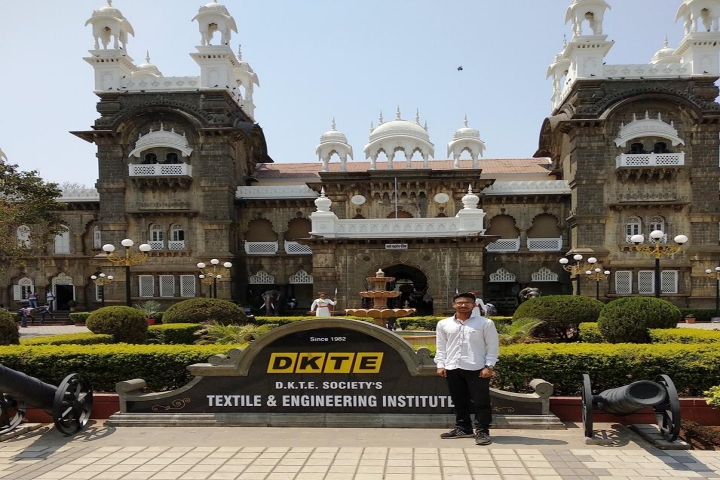

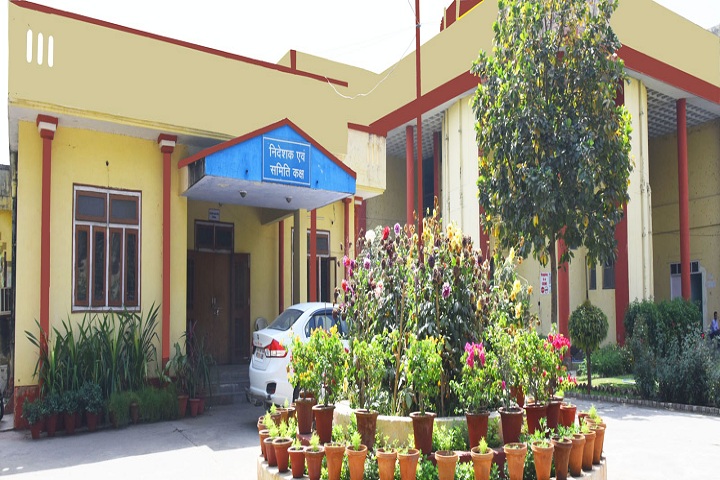
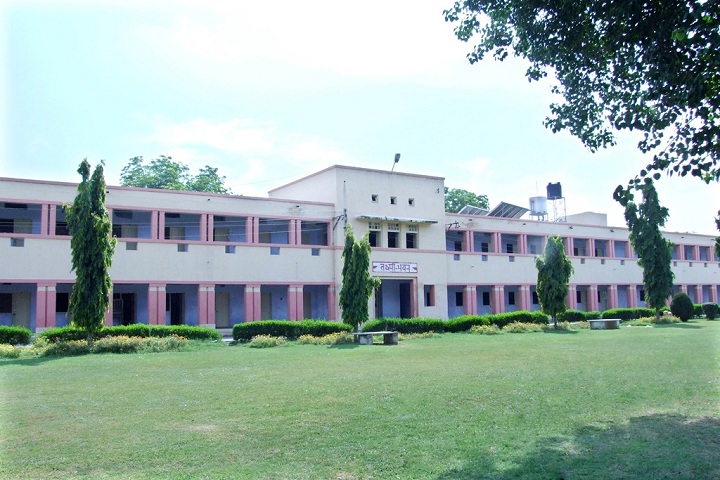

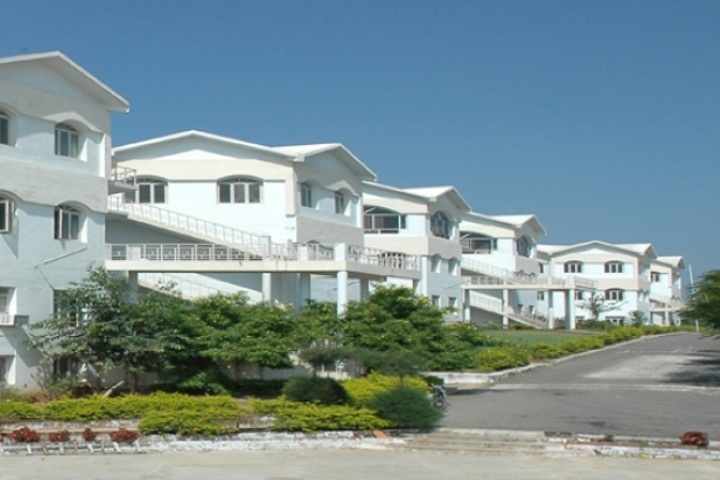

 Answer later
Answer later


















